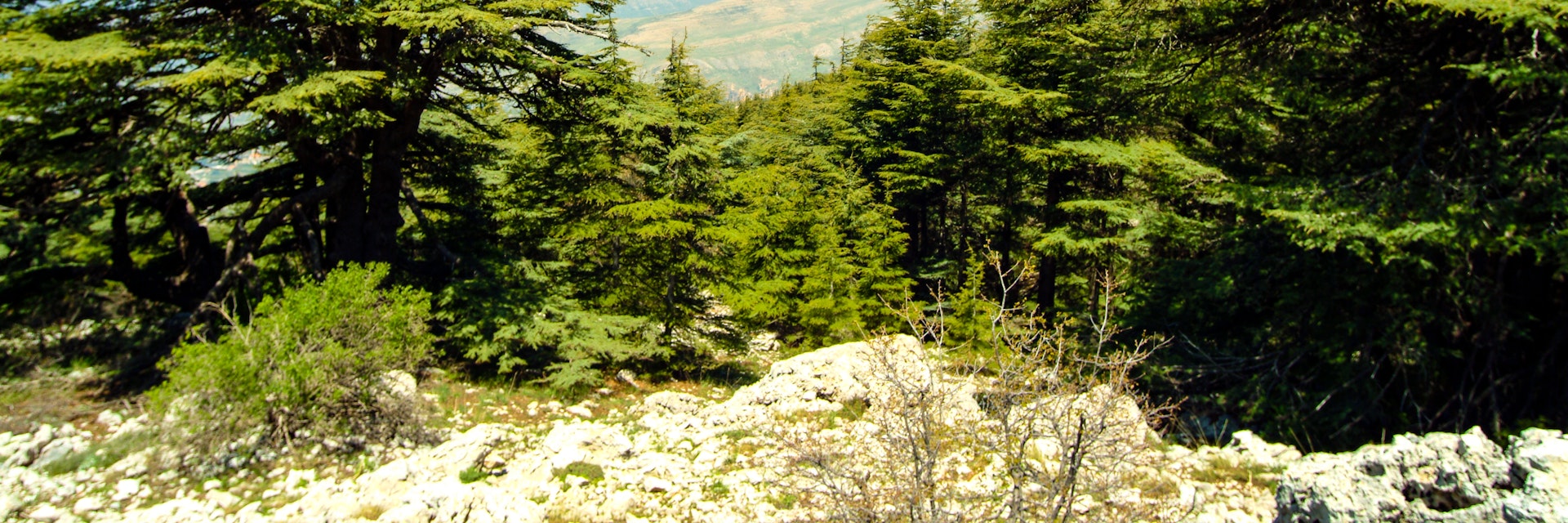The largest of Lebanon’s three natural protectorates, comprising an incredible 5% of the total land area, this is the largest natural cedar reserve in the country and has more than 250km of hiking trails. It's wonderful to see these beautiful trees in their natural environment, and the cool mountain climate makes a welcome change from the sweltering coast. There are several entrances, all with short-distance hiking trails to observe the cedars and access to longer trails.
At the entrances (Ain Zhalta, Barouk, Maasser, Niha, Mrusti and Aammiq) you will find ranger huts with restrooms – you should be able to negotiate to hire a hiking guide at each of these or obtain information about hiking trails. Those wanting to overnight nearby should check the website for details of the reserve's guesthouses.
The most interesting of the nodes is Maasser, where you can stroll for an hour or so among the trees, see a particularly venerable one and rest under the famous Lamartine cedar, whose spreading boughs cover a little nest in the rock. Both here and at Barouk, the trees are some 6km above the village.
Within the park are ancient rock-cut fortress remains as well as six of the country’s last remaining cedar forests, some with trees thought to be around 2000 years old. More than 200 species of birds and mammals (including wolves, gazelles, porcupines and wild boar) inhabit or regularly pass through the area. The reserve incorporates the Ammiq Wetland, a remnant of the extensive marshes and lakes that once covered parts of the Bekaa Valley. The last significant wetland in Lebanon, it's an important staging and wintering area for migratory water birds en route between Europe and Africa.





